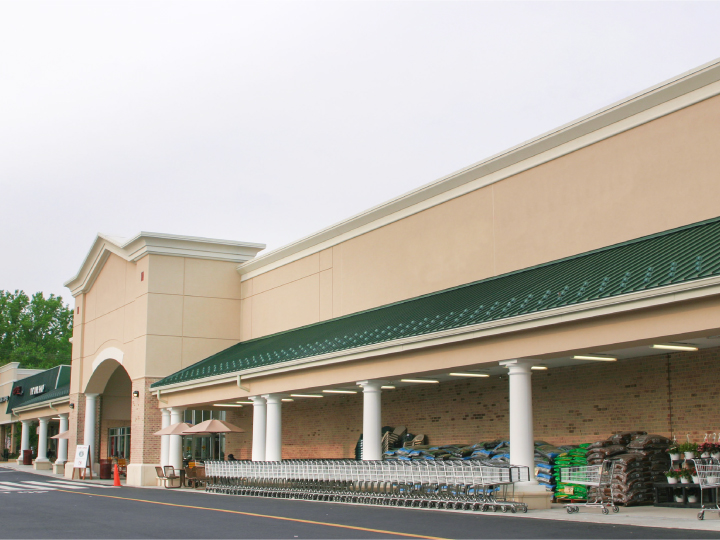Why Anchored Retail Centers Are a Resilient & Stable CRE Asset Class
April 8, 2024
As a commercial real estate loan’s collateral is typically the foremost source of repayment on a commercial real estate loan, the nuances of weighing the strength of that repayment source can be challenging to a bank.
One popular asset class is Multifamily properties. However, on a micro-level, the quality and performance of these assets ultimately depend on each tenant’s unique financial position and the infinite stresses thereto. Those influences contribute to the rise and fall of rental rates, especially since residential leases are most commonly written on one-year terms, and therefore continuously resetting to market conditions during the term of a loan.
A specific asset class that presents an opportunity to more confidently forecast the collateral’s repayment strength is the retail center, in particular dominant grocery or “big box” anchored shopping centers in densely populated residential areas and in proximity to major thoroughfares and other points of commerce. Retail centers reflect the pulse of the surrounding neighborhoods in which they serve.
Many communities can relate to the local retail strip center’s continuously changing tenant mix, where the favorite eatery has seemingly gone dark overnight with a new “coming soon” sign posted at some point in the future. While this is a common thread in the small business world, as a contrast, retail centers containing an anchor tenant such as a supermarket or large retailer create a destination effect that draws in the local population to patronize the smaller tenants’ businesses in addition to the customer’s primary shopping purpose.
Importance of a Diverse Retail Experience
A dominant anchor center is often well-spaced from other shopping center locations and offers a wide mix of storefronts to compliment the anchor tenant and to not cannibalize sales from one another. Often leases will contain clauses restricting the landlord from leasing available units to tenants with similar business models as an existing tenant. And while filling a center with national or chain tenants can be a positive for repayment of a bank’s loan given these tenants’ financial strength, it can be a double-edged sword whereby a well-capitalized tenant can more easily stomach relocation costs due to a multitude of factors. Therefore, a diverse assemblage of nationally known storefronts as well as locally owned “mom and pop” businesses can be the ideal complement to the anchor tenant.
In lending on this type of asset, a diverse and quality-based tenancy drives high occupancy levels, which results in predictable cash flow. This strengthens the performance of the loan throughout its term as well as the asset’s viability upon maturity. And in contrast to multifamily investment property leases, retail lease terms typically are written on five-to-ten-year terms with prescribed rental rate increases throughout. This reinforces stability and forecasting for both the bank and property owner.
The ultimate driver of a successful anchor retail center is the wherewithal of property ownership. An experienced owner and operator builds on its relationship with existing and potential tenants, maintains the property in a desirable fashion and focuses on providing a convenient and welcoming shopping experience to its customers. These are the attributes that a bank seeks out when weighing the probability of the loan’s success.
By Noah Littell, Vice President | Commercial Loan Officer
About Noah:

Noah Littell is VP, Commercial Loan Officer at Kearny Bank, where he originates commercial real estate loans throughout the Northeast. Asset types include retail centers, industrial buildings and multifamily developments. Noah has held commercial lending positions at several banks during his career, dating back to 2007. He holds a Master’s in Real Estate from the Zicklin School of Business, Baruch College, and a Bachelor of Business Administration from Baruch College.
To learn more about Kearny Bank’s Commercial Real Estate Lending capabilities, contact Noah.




